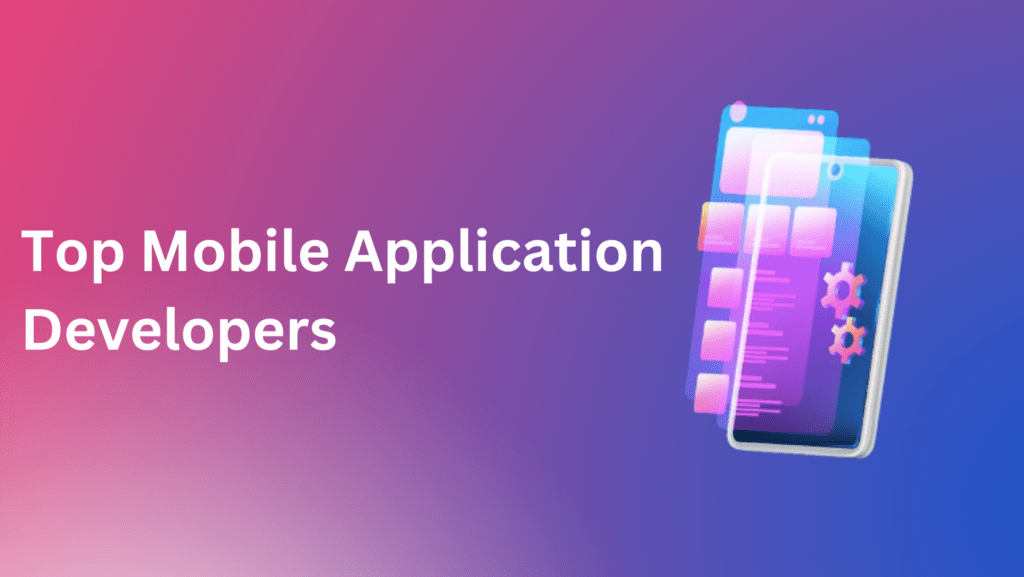Throughout the years, mobile applications have grown from entertainment and communication platforms to powerful business tools. Here are a few statistics from techjury.net to convince you that mobile app development is surging:
- Users are spending $380 billion worldwide on in-app purchases.
- There are more than five million apps out there.
- App revenue statistics show that in 2020, the total ad revenue was $581.9 billion and it’s still growing!!!
We think it’s time you take your business to a new level and begin development on your mobile app. But here’s the question: What is the best platform to use for mobile app development?
This article will answer that exact question, so sit back and read carefully!
Ideate and Determine What You Want Out of Your App
Before using any app development platforms, it is important to decipher what you want out of your app. What idea are you looking to pursue? Do you have a designated budget purposed towards creating the app? What features would you like to include and do you want special tools for incorporation – in addition to the basic features that most platforms already offer?
Having these answers will help keep your project on track, focus on a timeline that works for you and work out any potential kinks along the way. Think of what purpose your idea has and shape together the framework of how this idea can be constructed into an application – only then should you look at specific app development platforms from there.
Top 10 App Development Platforms

1.iOS
iOS is a mobile operating system created by Apple Inc. It is used exclusively on Apple devices, such as the iPhone, iPad, and iPod Touch. iOS is known for its user-friendly interface and wide range of features. Additionally, iOS developers can take advantage of Apple’s large ecosystem of devices and accessories.

2.Android
Android is a mobile operating system created by Google. It is used on a variety of devices, such as smartphones, tablets, and wearables. Android is known for its customization options and wide range of features. Additionally, Android developers can take advantage of Google’s large ecosystem of devices and accessories.

3.Windows Phone
Windows Phone is a mobile operating system created by Microsoft. It is used on a variety of devices, such as smartphones and tablets. Windows Phone is known for its user-friendly interface and wide range of features. Additionally, Windows Phone developers can take advantage of Microsoft’s large ecosystem of devices and accessories.

4.Xamarin
Xamarin is a cross-platform development tool that can be used to develop apps for Android, iOS, and Windows. Xamarin uses the C# programming language and allows developers to share code across platforms. Xamarin also has its own visual studio, making it a great option for small businesses.

5.Ionic
Ionic is a cross-platform framework that can be used to develop apps for Android, iOS, and Windows Phone. Ionic uses HTML5, CSS, and JavaScript to build its apps. Ionic also has a number of plugins and extensions that can be used to add functionality to apps.

6.React Native
React Native is a cross-platform framework that can be used to develop apps for Android, iOS, and Windows Phone. React Native uses the ReactJS library to create its apps. React Native apps are built using native components, which makes them fast and responsive.

7.Flutter
Flutter is a cross-platform framework that can be used to develop apps for Android, iOS, and Windows Phone. Flutter uses the Dart programming language and allows developers to create high-quality apps with smooth animations and attractive user interfaces.
Our Favorite DIY App Developers:

8.Appy Pie:
Appy Pie is a cloud-based DIY mobile app developer that allows users to create Android and iOS apps without any coding. The platform offers a wide range of features, including a drag-and-drop interface, pre-built app templates, and push notifications. Appy Pie also offers a number of enterprise-level features, such as an in-app purchase system and support for multiple languages.

9.BuildFire:
BuildFire is a DIY platform that allows users to create fully customizable native mobile apps for Android and iOS without any coding. The platform offers a wide range of features, including a drag-and-drop interface, push notifications, and in-app messaging. BuildFire also offers an enterprise solution that includes features such as team collaboration and user management.

10.Mobincube:
Mobincube is a DIY platform that allows users to create native mobile apps for Android and iOS without any coding. The platform offers a wide range of features, including a drag-and-drop interface, push notifications, and in-app messaging. Mobincube also offers an enterprise solution that includes features such as team collaboration and user management
As you might notice, many app development platforms suggest gaming applications. You might be thinking: well, I don’t want a gaming app because my company has nothing to do with that. We understand, and really, there’s two solutions here.
The first one being: you can still use these platforms regardless of your gaming status. Even if your company has nothing to do with gaming, you should still create a mobile application.
The second solution is to include gamification within your application. Gamification is on the rise, and for good reason. Integrating games into your app can be hugely beneficial for any business– no matter what industry you’re in.

Games draw users in and keep them engaged, meaning more people are likely to purchase or download and use your app more regularly. Moreover, gamifying your app can make it stand out from competitors who have yet to discover gamification as a way to success.
You can get creative with gamifying your app; not only do you have the option of directly integrating existing games into your application, but you can also gamify existing areas of the experience – such as collecting rewards as incentives, or using elements of game designs in certain parts of the interface. Integrating games into your app is a great way to build brand loyalty and ensure user retention.

Here is a real time example: Chimani National Park just upgraded their app with app gamification. Clearly, Chimani is an outdoor attraction and not a game of any sort, however, they leverage gaming by including a reward system that allows users to check in, review past visits, and keep track of their park bucket list, plus much more.
As the mobile app trend continues it’s rise, businesses small and large are looking for their own ways to get involved. And there’s good news – there are plenty of app development platforms out there ready to be utilized! Modernized Mobile is just one of many companies getting small businesses closer to achieving mobile app success. All of these platforms offer different unique features that can help any business create the custom mobile app they need. With so many options available, there’s no excuse not to get started on your very own app today!
-MoMo



